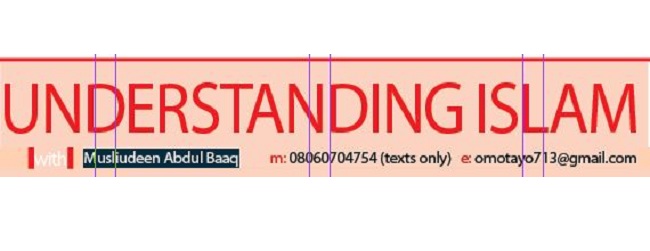In the name of Allah, Most Gracious, Most Merciful.
Eid al-Adha, known as the “Festival of Sacrifice,” is a significant Islamic festival celebrated on the 10th day of Dhu al-Hijjah. This day marks the culmination of the Hajj pilgrimage and commemorates the willingness of Prophet Ibrahim (Abraham) [AS] to sacrifice his son Ismail (Ishmael) [AS] in obedience to Allah’s SWT command.
Eid al-Adha, also called Yawm al-Nahr (the Day of Sacrifice), is considered by some scholars to be the greatest day of the year. The Prophet Muhammad (SAW) said, “The greatest day in the sight of Allah, may He be blessed and exalted, is the Day of Sacrifice, then the Day of Rest” (Ahmad).
Allah SWT also swore by this day in the Qur’an: “By the even and the odd” (Qur’an 89:3). Ibn Abbas explained, “The even is the Day of Sacrifice, and the odd is the Day of Arafah.”
The Prophet (SAW) emphasised the importance of this day and its rituals. He said, “The greatest day in Allah’s SWT sight is the Day of Sacrifice and the Day of Rest” (Ahmad). The Day of Rest refers to the first day of Tashreeq, which follows Eid al-Adha.
On this day, pilgrims perform most of the Hajj rituals, which is why it is also called the “Day of the Greatest Hajj” (Yawm al-Hajj al-Akbar). The Prophet Muhammad (SAW) said, “The best days with Allah are the Day of Sacrifice.” The Day of Sacrifice follows the great Day of Arafah and is succeeded by the blessed Days of Tashreeq. All these days are festivals for Muslims. The Prophet (SAW) said, “The Day of Arafah, the Day of Sacrifice, and the Days of Tashreeq are our festivals, the people of Islam, and they are days of eating and drinking.”
Significant rituals performed by the pilgrim on the Day of Sacrifice
Spending the night in Muzdalifah: Engaging in the remembrance of Allah SWT and supplication from after the Fajr prayer until sunrise.
Ceasing the Talbiyah and starting the Takbir: Combining both Talbiyah and Takbir, which are two great acts of worship.
Throwing the Jamrat al-Aqabah: The stoning ritual.
Slaughtering the sacrificial animals: As an act of obedience to Allah.
Shaving the head: The pilgrim shaves his head and exits the state of Ihram.
Performing Tawaf and Sa’i: The pilgrim circumambulates the Kaaba and walks between Safa and Marwah.
Key rituals and practices
Eid prayer: The Eid prayer is a highly emphasised Sunnah, and some scholars even consider it obligatory (wajib). It involves two Rak’ahs (units of prayer) and is typically performed in congregation in open areas or mosques. The Prophet (SAW) used to offer two Rak’ahs without any supererogatory prayers before or after them when performed in an open area (Ibn Abbas).
Prohibition of fasting: It is forbidden to fast on the days of Eid. Abu Sa’id al-Khudri reported that the Prophet (SAW) forbade fasting on the Day of Fitr and the Day of Adha (Muslim).
Qurbani is a powerful reminder of Prophet Ibrahim’s (AS) unwavering devotion to Allah’s SWT command. He faced a trial unlike any other: to sacrifice his beloved son, Ismail (AS). Yet, his (AS) faith in Allah’s SWT divine plan remained unshaken. Through complete submission to Allah’s SWT will, Ibrahim (AS) demonstrated the ultimate example of Tawakkul (trust). His willingness to surrender his own flesh and blood for the sake of Allah SWT exemplifies his true love for Allah SWT.
Through Qurbani, we reaffirm our commitment to submitting to the will of Allah SWT, a key principle of our Deen. It is a powerful act of Ibadah, reminding us that all we possess ultimately belongs to Him. By sacrificing a portion of our wealth in Qurbani, we demonstrate our willingness to prioritise Allah’s SWT command above all worldly desires.
The true essence of Qurbani extends far beyond the sacrifice itself. It exemplifies the Ummah’s core Islamic principle of Ukhuwwah (brotherhood). The equal distribution of meat ensures that those less fortunate can share in the bounty of Eid al-Adha, fostering a spirit of compassion and social responsibility. This act of charity reflects the Islamic pillar of Zakah (obligatory charity), reminding us of our duty to care for those in need.
Ultimately, Qurbani serves as a multifaceted experience that strengthens our Emaan. It deepens our understanding of Tawakkul and Taslim (submission), inspiring us to perform acts of generosity. It is a time to reflect upon the extraordinary example set by Ibrahim (AS) and to recommit ourselves to living a life devoted to Allah SWT and upholding the values of our faith.
Sharing blessings and compassion
The distribution of Qurbani meat serves a crucial purpose, weaving together social responsibility and Islamic values. Each portion carries a specific significance:
One-third for the sacrificer’s family: This portion fosters gratitude for Allah’s SWT blessings. It brings families together for meals, strengthening their relationships and reflecting on the deeper meaning of the sacrifice. This gathering becomes a time to remember the importance of unity within the household.
One-third for relatives, friends and neighbours: Sharing this portion strengthens the bonds of brotherhood within the community. It fosters a spirit of social harmony and reminds us to maintain good relations with those around us.
One-third for the poor and needy: This most significant portion lies at the heart of Qurbani’s ethical dimension. Sharing the bounty of Eid al-Adha with the needy honours the Prophet’s SAW teachings and embodies compassion. This act of charity reflects the spirit of Zakah and reminds us of our obligation to help others.
Following these guidelines ensures Qurbani extends far beyond the act itself. It cultivates gratitude within our families, strengthens social bonds, and most importantly, allows us to demonstrate compassion and generosity towards those less fortunate. This practice exemplifies the true essence of Eid al-Adha and reinforces our commitment to living a life guided by Islamic values.
The Prophet Muhammad (SAW) said, “I had forbidden you to eat from the sacrificial meat for more than three days so that those who could afford it could give to those who are poor, but now you can eat as you wish, feed others from it, and preserve some.” [Al-Tirmidhi, 1430]
More than meat: The extended impact of Qurbani
The ethical significance of Qurbani extends far beyond the immediate distribution of meat. It compels us to be mindful of animal welfare throughout the process. The Prophet (SAW) himself emphasised, “Verily, Allah has prescribed kindness upon everything” [Sahih al-Bukhari 6031]. This Hadith guides our actions throughout the Qurbani process:
Selecting healthy animals: We must choose animals free from defects, ensuring they are treated with respect and compassion throughout their lives.
Humane treatment: Transportation and slaughter must be conducted according to Islamic guidelines, minimising suffering.
Respectful utilisation: All parts of the sacrificed animal must be used thoughtfully, avoiding waste and showing gratitude for Allah’s SWT provision.
Furthermore, Qurbani encourages us to explore alternative methods of maximising its impact. Qurbani projects in underprivileged regions ensure the meat reaches those most in need, fulfilling our obligation to help the needy.
The significance of Qurbani serves as a powerful tool for self-reflection. The sacrifice compels us to surrender the worldly possessions we hold dear for the sake of Allah SWT. The process encourages us to empathise with the less fortunate. Ultimately, Qurbani serves as a reminder of the temporary nature of this Dunya and urges us to prioritise our Akhira.
By embracing the true significance of Qurbani, we commemorate Prophet Ibrahim’s (AS) bravery in the face of adversity. We also embody the core Islamic values of compassion, gratitude and social justice.
May this Eid al-Adha be a joyous occasion and a time of reflection. Aamin.
READ ALSO: Virtues of the lunar month of Dhul-Hijjah
WATCH TOP VIDEOS FROM NIGERIAN TRIBUNE TV
- Let’s Talk About SELF-AWARENESS
- Is Your Confidence Mistaken for Pride? Let’s talk about it
- Is Etiquette About Perfection…Or Just Not Being Rude?
- Top Psychologist Reveal 3 Signs You’re Struggling With Imposter Syndrome
- Do You Pick Up Work-Related Calls at Midnight or Never? Let’s Talk About Boundaries







